#army post
Explore tagged Tumblr posts
Text
Items To Hand Carry During A PCS Move
Whether you’re doing an HHG or DITY move, flying or driving to your duty station – there are some items you’re going to want to have on hand while traveling and when you reach your destination. This is going to be different for every family, of course, but these are some of the basics that will make your trip easier. 1. A Binder of Important Documents It doesn’t matter if this is your first…

View On WordPress
#army life#army post#cats#fort bliss#how to pack#military spouse#milso#milspouse#moving#PCS tips#pets#road trip#Texas#traveling#what to pack
0 notes
Text

Racing Miku 2025!
#people REALLY liked a eip i posted of her leg#i dont super know whyyy??#velvette army#art#digital art#fan art#artists on tumblr#hatsune miku#miku#vocaloid#miku hatsune#mecha#mecha miku#racing Miku 2025#racing miku
1K notes
·
View notes
Text
Things heard in the barracks part ??
“Shut up you little fat Whore. Yeah you like it when I smack your butt.”
Cue all male laughing.
I love it here lmao
1 note
·
View note
Text









how seb and clora get together in my fic 💕bc what better time and place to confess and share your first kiss than around a bunch of inferi + the dead body of a man you just killed?? 🥰💖
#and they say romance is dead#i remember how excited i was when brainstorming this scene LOL im still so happy with it/how i wrote it and glad i finally drew it#when i got the idea of seb using the relic to make an inferi army and save her BAHHA like...i get it clora. i get it.😔✊#id ALSO confess on the spot after seeing that LMAO like it could have been ANY man at that point and id be like... marry me???#obvs i had to shorten it and cut out some stuff BUT i got the gist of the scene#sad i didnt manage to include some stuff but it would have ruined the flow.....c'est la vie#god they really just make out for the entire beginning of that chapter tho LMFAOO god i had so much fun writing and posting every week#those early fandom days........(sighs wistfully and stares out the window like an old man)#hogwarts legacy#sebastian sallow#sebastian sallow x mc#sebastian sallow x oc#hogwarts legacy sebastian#sebastian x mc#hogwarts legacy fanfiction#clora clemons#choccyart#victor rookwood
1K notes
·
View notes
Text

Repetition is the key to success.
#RK800#DBH#HankAnderson#detroit become human#dbh connor#connor army#myart#DechartGames prompt - Day 15!#I spent ages figuring out the comic layout#turns out#it's not good for online posting#SO I AM SAD xD#falsedrawsrk800
4K notes
·
View notes
Text

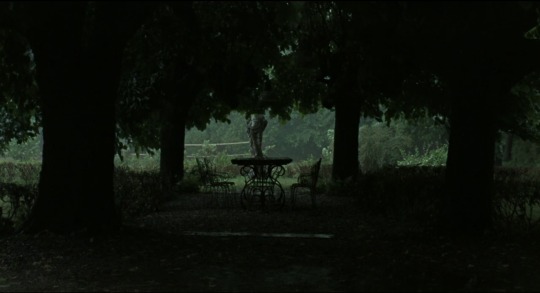

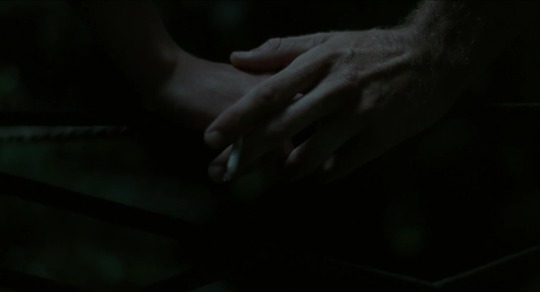
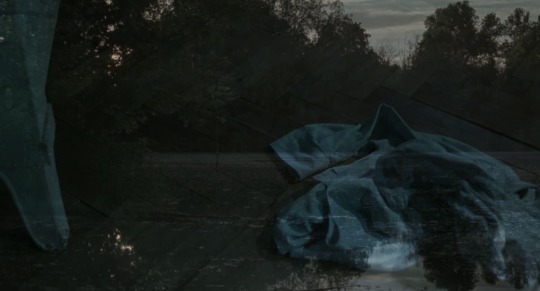
“If you only knew how little I know about the things that matter.”
Call Me By Your Name (2017) dir. Luca Guadagnino
#I can’t believe this is my first cmbyn post I literally rewatch this movie so much or else I go insane#cmbyn#call me by your name#luca guadagnino#timothée chalamet#armie hammer#michael stuhlbarg#esther garrel#andré aciman#amira casar#film screencaps#film stills#films#screencaps#cinematography#italian cinema
3K notes
·
View notes
Text
Fantasy Guide to the Army
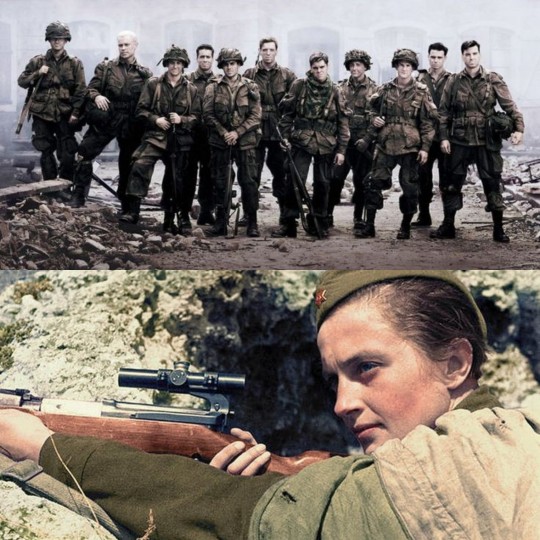
I have been asked to do this post for quite a long while and I finally got around to it. This guide is a basic guide, you may need to do further research into specific armies across the world. Armies are a necessary part to any world building, so what do we need to know about them?
(PS I had planned to include air force and navy but I am just one person and I cut myself, and the read more link, some slack)
Ranks
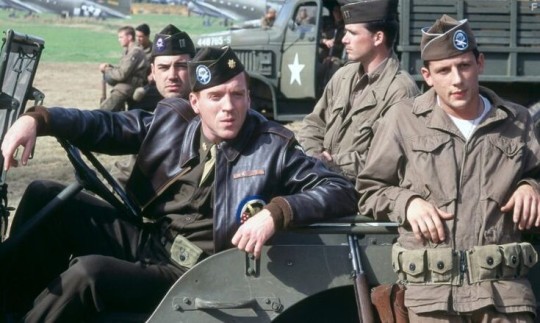
Field Marshal (FM) The Field Marshal is the highest rank of within the Army. The rank of Field Marshal was often granted in times of war (a general must have committed an act of valour, i.e. a victory). The rank can sometimes be used as a divisional command rank or brigade command. The UK, Austria-Hungary, Afghanistan, Germany, India, and Pakistan use the rank as a reward for achievement. Spain and Mexico use it for divisional command while countries such as Portugal, France and Brazil for use it for brigade command. The rank of Field Marshal is a "five star" position. The rank does not exist in the US army. They are addressed as Field Marshal Surname. Their insignia is two crossed batons surrounded by yellow leaves set under a crown.
General (Gen.) A General is the commanding officer of an army or army corps. It is currently the highest rank granted in most armies today, it is a 4 star position. A General is in charge of commanding large units, they are in charge of making strategic decisions for the army, oversee major military operations, manage the needs of the army. They are addressed as General Surname. Their insignia is four stars (US, France, Germany, Russia) and a sword and baton crossed under a crown and a star (UK). Lieutenant General (Lt.Gen) Lieutenant General commands an army corps or a division (tens of thousands of soldiers). They are also involved in strategic planning. They also hold positions within the Ministry of Defence/Equivalents. They would often serve as advisers to the government and aid Generals. It is a 3 star position and they addressed as Lieutenant General Surname. Their insignia is three stars (US, Germany, France, Russia) and a crossed sword and baton under a crown (UK)
Major General (Maj.Gen) Major General is a general officer in the army, responsible for leading and operational roles. They would command divisions of tens of thousands of soldiers. They support the officers above them, helping with strategy, executing the strategy, oversee the training of their units. They are addressed as Major General Surname. They are a 2 star position. Their insignia is a crossed sword and baton with a star (UK) and two stars (US, Germany, Russia, France). Brigadier General (Brig.Gen) Brigadier General is a one-star general officer in the army. They command brigades (3,000 to 5,000 soldiers), assisting Major Generals in tactical planning and coordination of operations. They are addressed as Brigadier General Surname. Their insignia is one star (Russia, Germany, US,), two silver stars (France) and s crown and three stars (for the UK, stars are known as pips). Colonel (Col) Colonels command brigades of about (3,000 to 5,000 soldiers), they are senior staff officers who both provide leadership to their units which are sometimes specialised agencies, such as task forces. Colonels are addressed as Colonel Surname. A silver eagle (US), a pair of diamond pips under a crown (UK), three silver pips upon shoulder braid with silver braid (Germany), three gold pips on a shoulder board with golden braid (France and Russia). Major (Maj) Majors command units of around 120 officers. They are in charge of the training and welfare of their soldiers, administrative duties within the barracks and within their unit. They are the primary staff officer in brigades. They assist superior officers in planning and executing missions and tactical plans. The Major is referred to as Major Surname. Their insignia is 2 gold stars on a shoulder board with golden braid (Russia, France) 2 silver pips on a shoulder board with silver braid (Germany), a crown (UK), a golden oak leaf (US)
Captain (Cpt) Captains lead companies usually around 50-200 soldiers. They are often the second officer in a company working alongside a superior officer. They are responsible for operations in the field such as ensuring equipment is kept up to date and in good condition, offering logistic support, and managing their troops. Captains are addressed as Captain Surname. Their insignia is two silver bars (US), three pips (UK), three silver pips on a shoulder board with silver braid (Germany), three golden pips on a shoulder board with gold braid (France, Russia) Lieutenant (Lt) Lieutenants command a platoon (about 30 odd soldiers). They are in charge of overseeing the training and discipline of their soldiers along with ensuring their welfare. They will participate in missions under the command of a superior. Lieutenants are addressed as Lieutenant Surname. Their insignia is two golden stars on a shoulder board with gold braid (Russia, France), two silver pips on a shoulder board with silver braid (Germany), two pips (UK), one silver bar (US) Second Lieutenant (2/Lt) The Second Lieutenant leads smaller units, working with enlisted soldiers. They are crucial in the training of soldiers, they maintaining personnel records and manage the resources needed for a mission or the units welfare. They would be addressed in conversation as Lieutenant but referred to as Second Lieutenant in dispatches and in correspondence. Their insignia is one gold bar (US), one pip (UK), one silver pip on a shoulder board with silver braid (Germany), one gold pip on a shoulder board with gold braid (Russia, France)
Enlisted Men
Warrant Officer 1st Class (1/WO)This is the most senior non-commissioned rank. They focus on discipline, prisoners, ammunition supplies and various technical and non-combatant services. In the UK, they often hold the rank of Regimental Sergeant Majors (RSMs) and are appointed by the Secretary of State Defence while in the US, the Secretary of the Army appoints them. They are addressed as Mr/Ms/Mrs Surname or Chief. Their insignia is one silver bar and a black square (US), the royal coat of arms (UK), four silver pips on a shoulder board with silver braid (Germany), three gold chevrons and a gold star (France), two gold stars on a shoulder board with golden braid (Russia) Warrant Officer 2nd Class (2/WO) The Warrant Officer Second Class would do similar jobs as the WO1, but they handle the below regimental section. Warrant Officer Class 1 (WO1). WO2s can be referred to as Company Sergeant Majors (CSMs) or Squadron Sergeant Majors (SSMs) (depending on their unit). They take roles within training, discipline and aiding the Warrant Officer Class 1 (WO1). Addressed as CSMs/SSMs and as Mr./Mrs/Ms. Their insignia is one gold star on a shoulder board with gold braid (Russia), Three golden chevrons (France), three silver pips on a shoulder board with silver braid (Germany), crown (UK), silver bar with two squares (US). Sergeant (Sgt)The Sergeant are responsible for the soldiers under their command. They oversee their team, acting as mentors and supervisors to their soldiers. Sergeants are over a squad of 10 soldiers. They are responsible them, from performance, prepare them for combat and their needs. They are addressed as Sergeant Surname. Their insignia is three chevrons (US, UK), two silver pips on a shoulder board with silver pips (Germany), two golden chevrons (France) and three golden chevrons (Russia). Corporal (Cpl)Corporals lead small squads of soldiers, no more than . Corporals are in charge of the training of their soldiers and ensuring that they are up to standard. They handle all the paperwork for their squad such as records. Corporals will accompany their soldiers on missions, leading patrols and overseeing their soldiers in the field. They are usually responsible for large pieces of equipment. They are addressed as Corporal Surname. Their insignia two chevrons (US, UK), one silver pips with shoulder board with a silver braid (Germany), two gold chevron (France, Russia). Lance Corporal (L.Cpl)Lance Corporals help Corporals lead their teams, acting as their second in command. They are in charge of disciplining, mentoring and leading their squads. They are also in charge of large weapons. They are addressed as Lance Corporal Surname. Their insignia one golden chevron (Russia, France), none/one silver pip (Germany), one chevron (UK) and one chevron with crossed rifles (US) Private (Pte)Privates are the lowest rank in the army. They will have just come out of training with the basic skills of a soldier. Privates are given tasks by superior officers, must obey the orders given and are usually given the more hands-on tasks, such as maintenance of weapons and their camp. They are addressed as Private Surname. Their insignia is one chevron/none (US), no insignia (UK, France, Russia, Germany).
Non-Commissioned Officers vs Commissioned Officers
You may have often heard the term "non-commissioned officer" if you have ever watched any war media. The difference is that Commissioned Officers receive their rank via a formal document signed by a high-ranking official, such as the monarch or a political leader. The Commissioned Officers are usually Lieutenants, Colonels, Generals, Captains, Majors. They are responsible for giving orders and making decisions. Non-Commissioned Officers are promoted from the enlisted ranks, gaining their promotion on skills alone. They are in charge of discipline, training and carrying out orders. They are usually ranked among Corporals and Sergeants.
Jobs within the Army

No army is just made up of officers and their soldiers. An army is like a town on the move, there are hundreds of different tasks that must be undertaken to ensure the army is fed, transported, kept in line and kept equipped.
Medic: Medics are the first responders for wounded soldiers, they administer first aid, medication and medical care to the soldiers in their unit. Medics are usually NCOs.
Chaplain: Is a soldier with some religious or spiritual calling that administers last rites, confession, spiritual guidance and solace for soldiers. They will see to soldiers of all creeds and faiths.
Artillery Crew: The Artillery Crew handle the maintenance and inventory of artillery weapons and related equipment. NCOs with training in the handling of artillery.
Military Police: The Military Police are force within the army that keep soldiers in line, maintain order and arrest any soldier caught doing a crime on the job. Always NCOs.
Intelligence: This is the information post, which involves fact gathering, recording and study of information needed by the army to mobilise.
Quartermaster: The quartermaster manages the distribution and gathering of all the things needed for the army from uniforms to equipment for the soldier's packs. Usually NCOs.
Mess Officer: The Mess Officer oversees the Mess Hall, managing the staff as they cook and prepare the army's meals. The Mess Officer would also be in charge of budgeting, inventory, health and safety and providing meals timely. Usually an officer, Captains and Lieutenants.
Adjutant: Is an officer who acts as an assistance to a superior officer taking on secretarial duties such as paperwork and arranging their diary. Usually a Captain or a Major.
Combat Engineer: The Combat Engineer is in charge of maintaining and building fortifications. NCOs with specialised skills in the field.
Logistics: Logistic Specialists handle the supplies, equipment and arranging transportation. NCOs.
Armourer: The armourer is in charge of weapons and ammunition. They handle any repairs needed and see to the safe storing of these valuable items. NCOs.
Communications Specialist: These Specialists handle communications, the communication equipment and its maintenance. NCOs usually with previous experience or training.
Mechanics: Mechanics are in charge of the maintenance of vehicles and machinery. They handle repairs, do check ups, offer support in the field and ensure everything is in good shape. NCOs with training and skills in the area.
Equipment
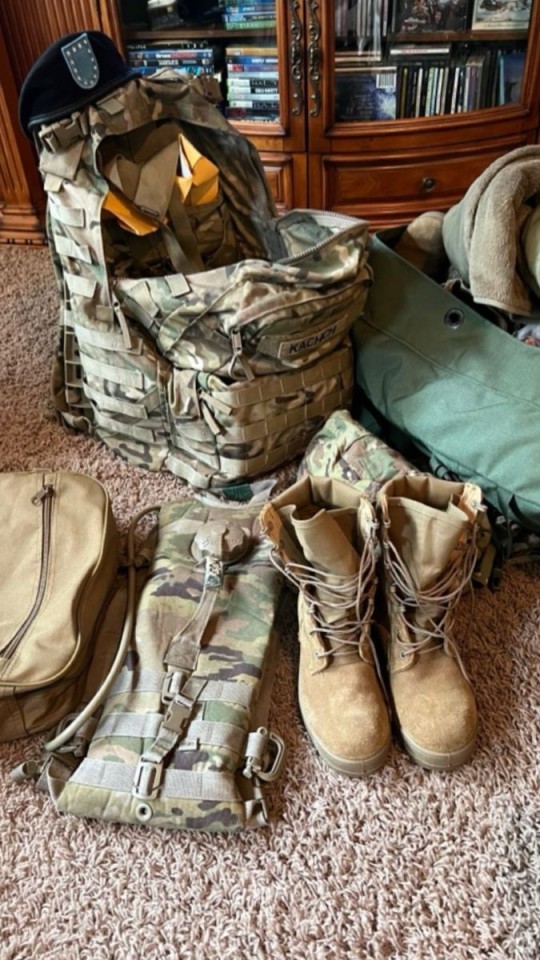
The soldiers will not be going into any situation without equipment - at least, not at first. Equipment is like gold dust in the field, especially if a unit is within enemy territory or the supply chain cannot be relied upon. Soldiers may often turn to thievery in order to resupply themselves with ammunition, weapons, supplies and even boots. In WWII, the newly formed company the Special Air Service - the SAS - actually raided their allies for supplies.
The soldier would carry essential supplies when they are first deployed. These would include (may vary):
Flasks/Canteen: Or some sort of drinking container. A soldier will need to hydrate if they don't wish to die-dydrate on a long march. They may also carry water purification chemicals such as iodine.
First Aid Kits: All soldiers will carry the basics of a first aid kit. This would include bandages, gauze, burn ointment, tourniquet, pain relief (not the good stuff), scissors and tweezers.
Knife: It is always handy to have something to cut things with.
Gun Cleaning Tools: Soldiers will have the equipment to care for their weapons. An uncared for weapon is an invitation for death.
Ammunition: A soldier would carry ammunition with them.
Entrenching Equipment: Something to dig with, usually a collapsible shovel.
Rations: Soldiers may often carry some sort of food with them, usually of the preserved kind.
Some form of shelter: Soldiers may carry something to shelter themselves such as a sleeping bag, a tent, a blanket.
Signal Mirror: Soldiers carry signal mirrors to send visual signals to communicate with others.
Toiletries: Basic hygiene items.
Weaponry
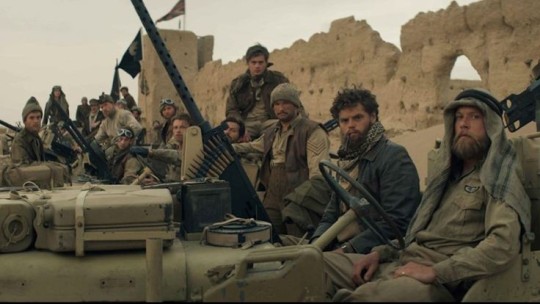
Soldiers will not only just need equipment to survive on the field. Soldiers will carry all sorts of weapons on them. It was up to the soldier to care for the weapon and ensure it is up to scratch. Ammunition, of course, doesn’t grow on trees and nor do weapons. Weapons and ammunition like supply I mentioned above could often be “liberated” from the enemy or even unwitting allies. Every soldier will carry:
A rifle: This is the long-range weapon carried by almost all soldiers. They will use this in combat, especially if fighting from a fixed position.
A handgun or a pistol: Most soldiers will carry a secondary gun. These guns are useful in tight spaces or close combat.
Bayonet: A knife or blade that is attached to the rifle. This allows a soldier to stab the enemy with their rifle.
Combat Knife: A knife used in combat.
Mortar: This is a short-barrelled artillery piece. It is used to fire shells at steep angles.
Hand Grenades: These are handheld explosives carried by soldiers. They have a delayed fuse, meaning that they are useful as both a long-range weapon and as a close-range weapon – one could leave one behind as a present. They are typically activated by pulling the pin, flinging it away from the body, toward the enemy and denoted.
Uniforms
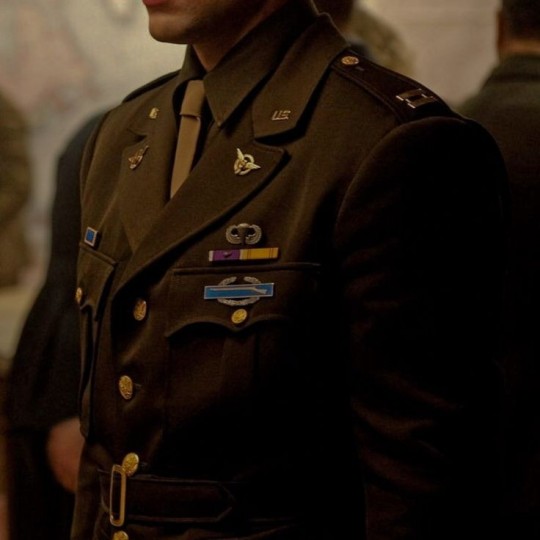
Above in rankings, we went through the insignia which is the symbols on one's uniform that denotes your rank and place in the hierarchy of things. Soldiers will be inspected every day to ensure their uniforms are up to standard and will face the wrath of superiors if their uniforms are unkempt and their appearance not up to the mark. Every private learns how to shine their own boots, sort out their own uniforms and are responsible for looking their best. There are different kinds of uniform for a soldier.
Casual Uniform: This uniform is comprised of a more casual uniform, made up of a tunic/shirt, trousers and boots. Certain units will wear caps and berets denoting their unit and rank as well. Combat Uniform: This is worn on the field. It will often reflect the climate the soldier is going into, so will be light and heavy depending on the weather. A soldier would wear a combat jacket, trousers, wear a helmet, wear their identification tags/dog tags. These would be in mute colours, usually khaki or camouflage. Service Dress Uniform: This is worn during official duties and formal events. It comprises of a dress shirt, tie, peaked cap/beret, creased trousers and a jacket with their insignia, unit symbols and medals. Dress Uniform: This is worn during very formal ceremonies. A formal jacket pinned with ribbons, embroidered insignia and the medals of their achievements and commendations, creased trousers, dress shirt and tie, polished shoes and a formal hat cap/beret.
Life of a soldier (On Base and in the Field)
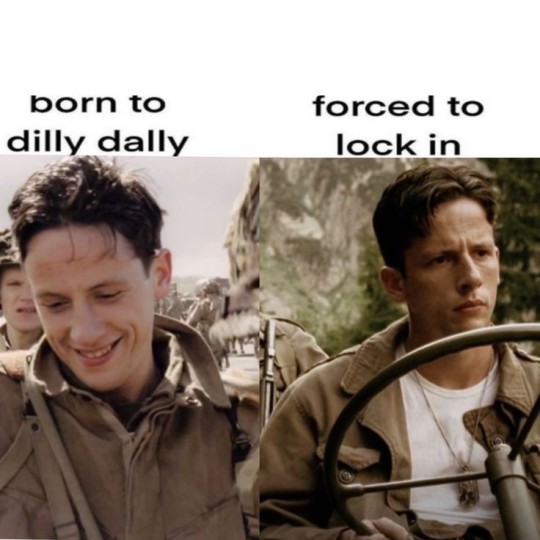
Soldiers on active duty will be expected to manage many tasks, not just firing at the enemy or storming enemy beaches. Soldiers are expected to fulfil maintenance work, defence, offence, administrative duties (if needed), engineering and communications.
On Base: A soldier’s day will be planned right down to the second. They will get up at a certain time, have an allotted time to get ready and tidy up their bunk, report to various drills and participate and have a list of duties to undertake within the day. These duties involve maintenance on base, helping with any office work, guarding and patrolling, doing specialised tasks such as helping in the infirmary. Most privates will do the grunt work, anything hands on or labour intensive while officers will see to training soldiers or paperwork or supply management.
In the Field: The life of a soldier in the field wasn’t as regimented as on base – it can’t be, since most soldiers won’t have the exact same day especially in battle or marching from place to place. But every soldier will have certain duties to undertake. Of course, fighting will be included, some soldiers would take it in shifts to man a fixed position or to engage the enemy or to participate in missions into new or enemy territory. Soldiers would take their place “out on the line”, patrolling the edges of their camp to ensure they can’t be crept up on. Soldiers will erect camp every night they aren’t marching which includes the putting up of tents, digging of latrine pits, building fortifications. Soldiers not out on the line or engaging the enemy will spend their time at camp either helping in the mess hall, in the infirmary or keeping the camp ship-shape. Soldiers may often be sent out to “forage” (*cough, cough* steal) whatever they need such as food.
The Realities of the Army
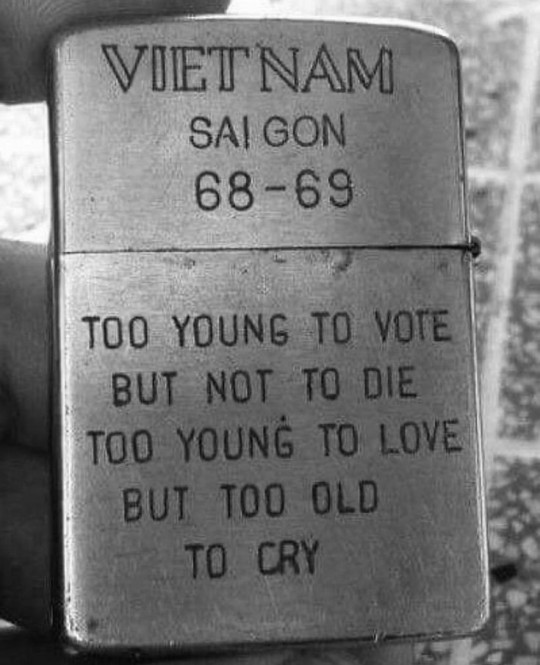
Good vs Evil. Yes, sometimes the army are the heroes. But in reality, war is a grey area. No army in the world is wholly bad or innocent. Every single army on earth has committed war crimes and every army has had to make decisions which some would find morally reprehensible. The point is that painting an army as the good guys or the bad guys in your narrative can’t work because it isn’t realistic. You can of course highlight these issues by the actions of a few soldiers while still retaining the antagonists and the heroes. You can of course pit the ideals of both sides in a war together, to firmly push your reader toward the good guys vs the bad guys. But the reality is a simple one: all armies kill, all armies steal and all armies destroy.
Civilian vs Soldier: The Reality Civilians suffer at the hands of their own army as well as the enemy. Civilians often had to deal with soldiers taking their crops, livestock and overtaking their homes in searches for food, shelter and resources. Enemy civilians would also put up with pillaging, looting and in some cases death, assault and sexual abuse. It is of course against protocol to harm civilians but things do happen in theatres of war.
The Army vs the Soldier
While the army expects a lot out of the soldier as an induvial, the army can often fall short of their duties to that soldier. This can be unintentional, for example supplies can get lost or stolen. But there are instances where soldiers and their needs are sacrificed for the greater good. They maybe passed over for supplies or reinforcements for another unit. They may be placed in difficult circumstances without any hope of relief. They may not have the equipment needed to fight their battle or stay alive. Sometimes, armies even shot their own soldiers for insubordination, ex. In WW1, many soldiers on all sides were shot by their own for “cowardice” – this may have been the case, but some cases involved soldiers who were suffering from PTSD.
Choice vs Obligation vs Threat Why do soldiers fight? What makes somebody join the army? Sometimes it is the search of opportunity, of a place, of rank and a purpose. But sometimes, going to war isn’t the choice of the soldier. Drafts and conscription make military service compulsory for certain age groups and genders. In peacetime, soldiers are enlisted voluntarily in most armies while some countries have compulsory service time even in times of peace. In some wars, criminals in prison were offered the chance to serve in the war as penance for their crimes. There are of course instances when one is threatened or forced into an armed force.
The Effects of War on the Soldier War changes people. The things soldiers see and have to do within war and training will inevitably change them as people. Sometimes, the change is positive, the army has been named by many people as the thing that straightened them out and have them structure. The army sometimes allows soldiers to travel and gain access to opportunities and education that they may never have had access to before. But undeniably, war has negatives effects on soldiers and civilians. Soldiers may suffer from PTSD, depression, suicidal thoughts and feel a disconnect between themselves and their old lives. Soldiers often find it hard to return to their life after the war, especially in radically different settings with people who don’t understand what they have been through. This can lead to substance abuse issues, alcoholism, problems with the law and troubles within relationships among family and romantic partners. Soldiers of course can get injuries while in war or even in training. Loss of limbs, damage to the brain and other organs, broken bones, burns, shrapnel injuries and of course gunshot wounds are all common. Soldiers often get ill while in the field, such illnesses including typhoid, hypothermia, trench foot, dysentery, malaria, pneumonia etc. These are caused by the close living quarters and the often-sub-standard living conditions. Soldiers would often be at risk for pests such as lice and fleas because of their living conditions. Soldiers may often face problems with nutrition, might suffer from dehydration and starvation especially if supplies are scarce.
The Geneva Convention
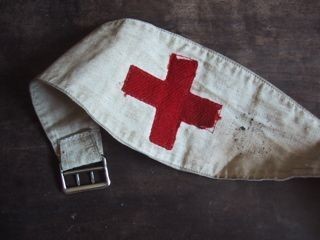
Your world may not include the Geneva Convention, may pre-date the Geneva Convention or Geneva may not be a place within your WIP, but I include this here so you might have a fair idea about the “rules” of modern warfare. This is just a brief version.
Medical personnel are not to be specifically targeted in operations.
Medical facilities and equipment is not be targeted in operations
Any wounded soldiers or civilians are to be treated, despite allegiance.
Prisoners cannot be tortured or harmed in any way
Prisoners must be fed, well-kept and treated for any injury
Prisoners are not under obligation to tell their captors anything but their name, rank and other personal information – this is so they can be recorded and all information must be recorded and sent to the captured soldier's officers
Prisoners must be allowed to communicate with family and friends.
Prisoners have the right to receive any packages or mail.
Prisoners have the right to access the services of the Red Cross, who cannot be prevented from visiting and inspecting them
Prisoners who are seriously wounded or ill must be released
Any religious figures are to be captured and released as soon as possible
Soldiers cannot take hostages, they cannot pillage, they cannot take slaves.
Soldiers must abstain from humiliating and degrading any captured soldiers or civilians.
Reprisals against civilians and other soldiers are forbidden.
Group punishment is not permitted (Yes, that one teacher did break the Geneva Convention)
Prisoners can be tried by their captors, but they are entitled to a fair trial.
All POWs shall be released at the end of conflict
At sea, hospital ships cannot engage in war.
Any shipwrecked crew on a ship must be rescued despite allegiance.
Children, pregnant women, mothers with very young children, the elderly, the sick and wounded who are imprisoned for a long time, must be released as soon as possible.
Surrendering soldiers, civilians and civilians who participate in acts against an army cannot be harmed and must be taken alive.
The use of weapons to cause suffering, say a non-fatal wound or mutilation is prohibited.
It outlaws indiscriminate attacks on civilian populations and destruction of food, water and other materials needed for survival.
The destruction of resources that could affect the population such as poisoning the water supply is not permitted.
Certain infrastructure cannot be destroyed or targeted. This includes dams and nuclear stations. Cultural landmarks and religious landmarks are also to be spared.
Recruitment of children into the armed forces is prohibited.
The use of certain symbols such as the Red Cross in order to deceive the enemy is prohibited.
Civilians who do not take part in combat are to be treated respectfully. They are protected from violence from soldiers.
Children and vulnerable people are top-priority to be evacuated to safe havens as soon as possible. All efforts will be made to reunite them with family.
The targeting of civilians and anything that sustains their well-being such as food sources is prohibited.
Military Terminology

This is by no means a full list but these are the most commonly used terms.
Boots on the ground – to physically be in a location
Inspection - a superior officer takes formal note of appearance, condition of living area and weapons.
Drill – a practise in various manoeuvres, marches, procedures
Pass - leave to have some free time, sometimes off base.
Off base - away from military barracks
Tour of duty – the period of time which an action is completed in.
Civvies – Civilian clothing
Detail - a specific task undertaken by a unit or soldier
Mess hall - dining facility
Latrine - toilet
Latrine duty - digging a Latrine pit or cleaning the facility
Flanking - Attacking an enemy formation from the sides
Envelopment - surrounding the enemy from multiple sides
Penetration - breaking past the enemy’s front lines
Reconnaissance by Fire - Firing at positions that may be occupied by the enemy to provoke them into returning fire (so you know where they are)
Ambush - Attacking from concealed position
Retreat - go back the way you came (DO NOT COLLECT €200)
Feigned Retreat - Pretending to retreat and then attacking the enemy
Perimeter - boundary of fortified area
No Man's Land - the space between front lines
Contact line - where opposing sides meet to fight
Supply line - the route the supplies get from base to the field.
Front line - the furthest out troops are place on the line, this is where the most intense fighting happens
Barracks - sleeping quarters in base
Foxhole - a dug position in the ground
Combatant: A person actively engaged in fighting.
Non-combatant: A person not engaged in a conflict.
Civilian: Somebody who is not a member of any military unit.
Militia: Civilians who are armed and trained to fight.
Guerrilla: Small, independent units that takes up arms against an armed force. Very effective.
Saboteur: Somebody who deliberately sabotages equipment and supplies.
Spy: Somebody who gathers information about the enemy.
Operative: A soldier who carries out a specific task.
Mercenary: A soldier for hire
Contractor: A person or a group of people who are hired to provide advice, services and additional support to the army and their operations.
Conscription: Compulsory enlistment.
Enlistment: Joining the army.
Exercise: Simulated military practises or manoeuvres for training.
War game: Simulated war fare for training.
Mission: The operation.
Objective/Target: The objective of the mission.
Campaign: Multiple operations.
Down Range – being within the combat zone
In-Country – being within in a war zone
Quarters – can mean one of two things either it is a medic's order to stay in the camp or barracks or military family housing.
Squared away - to fix
Siege: Where one army sits outside a fortified town or position and tries to claim it.
Convoy: A large group of vehicles such as trucks, jeeps and tanks travel together. It is harder to target more than one vehicle.
Escort: More vehicles and soldiers who accompany a convoy.
Strike/Assault: Attacking the enemy.
Counterattack: An attack to respond to a previous attack
Rear: Behind the formation
Front: Before the formation.
Line: The formation.
Column: The formation in a line.
Formation: The arrangement of soldiers
Deployment: Soldiers moving to a position.
Redeployment: Sending soldiers to another position.
Mobilization: Readying soldiers, their supplies and equipment for deployment.
Demobilization: The disbanding of soldiers after an operation.
Reserve: Soldiers and equipment held back. This is usually to conserve soldiers and supplies for emergencies or shortages.
Reinforcement: More soldiers and equipment sent to the soldiers on the line to bulster their efforts.
Casualty: Death, injury, missing.
KIA: Killed in action.
MIA: Missing in action.
Surrender: Yielding to the enemy.
Ceasefire: An agreement to cease hostilities.
Armistice: A temporary stay of fighting.
Battalion: A large unit of soldiers. Usually in the range of 300 upwards to 800 or so soldiers.
Regiment: A unit made up of several battalions.
Division: A military unit (10,000-20,000)
Corps: A unit, (20,000-50,000)
Theatre: The place where military operations are undertaken.
Engagement: A battle or a conflict with the enemy.
Manoeuvre: Planned movement.
Logistics: The planning of moving soldiers and equipment to soldiers.
Ordnance: Supplies.
Artillery: Large-calibre firearms.
Infantry: Soldiers who fight on foot.
Reconnaissance: Gaining information about the enemy and their positions.
Tactical: Planning and implementation the military strategies.
Strategic: Planning and directing strategies.
Operational: The following through of military operations.
Command/Control: The authority to direct military operations.
Communications: The passing of information between units, base and HQ.
HQ: Head Quarters
Intelligence: Information about the enemy
Counterintelligence: Preventing the enemy from gaining information about the army, such as the famous Operation Mincemeat.
Camouflage: The use of material or paint to hide oneself from one’s enemy.
Fortification: Defensive structure
Entrenchment: Digging trenches or foxholes.
Garrison: Military station.
Bivouac: A temporary camp, but this camp is without no cover. This means no tents or shelter.
Dog Tags - Metal identification tags worn by soldiers
Patrol: Soldiers will leave camp or their positions to walk within their boundaries
Raid: Attacking on the enemy’s position.
Zero Dark Thirty - Early as fuck, from 0100 hrs to sunrise.
Copy - I understand
Unit - can mean any organisation in the military
Platoon - a section within a company made up of 30-50 soldiers
Contact - Engaging with the enemy
Tactically Acquired - Stolen
Squad - a smaller faction of a company
CO - Commanding officer
XO - second in command
Hang Fire - wait for the next set of orders
Demilitarized Zone - a place that is no go for military equipment, weapons and soldiers
AWOL - Absent without leave
PT - Physical Training
Skivvies - ones undergarments
Active Duty - Full time duty in active service
As You Were - Go back doing whatever you were doing or standing how you were standing
BOLO - Be on the Lookout
CP - checkpoint
Bunk - Bed
Ruck - backpack
Smoked - physical punishment for an infraction.
Zone of Action - a specific part of the tactical area.
About face - a manoeuvre where a someone or a group turn to face the opposite direction.
POW - Prisoner of War
POW Camp - facility to house POWs
Halt - stop marching/moving
Present Arms - salute, typically by presenting one's weapon or raising the right hand to the forehead
Parade Rest - stand with one's feet shoulder-width apart, hands folded behind their back
Fall out - break formation
Fall in - get into formation
At ease - stand in a more relaxed position
Attention - stand upright, heels together, back straight, shoulders back, arms at the sides.
Books and Media I recommend
Band of Brothers (HBO, Limited Series)
Beyond Band of Brothers by Dick Winters
Band of Brothers by Stephen Ambrose
M*A*S*H
The Unwomanly Face of War by Svetlana Alexievich
Lady Death: The Memoirs of Stalin's Sniper by Lyudmila Pavlichenko
The Six Triple Eight
Some Desperate Glory: The First World War the Poets Knew by Max Egremont
Poems of the Great War 1914-18
Poems of the Great War by Wilfred Owen
Poems of the Great War by Siegfried Sassoon
Poems of the Great War by Robert Graves
Poems of the Great War by Rupert Brooke
Poems of the Great War by David Jones
SAS Rogue Heroes (BBC)
SAS: Rogue Heroes: The Authorised Wartime History by Ben MacIntyre
Saving Private Ryan
All Quiet on the Western Front by Erich Maria Remarque
All Quiet on the Western Front
Private Peaceful by Michael Mupurgo
War Horse by Michael Mupurgo
Road to War by Valerie Wilding
The Trenches by Jim Elderidge
D-Day by Byran Perett
D-Day by Ben MacIntyre
Japan's Pacific War by Peter Williams
Operation Mincemeat by Ben MacIntyre
War Nurse by Sue Reid
Helmet for my Pillow by Robert Leckie
With the Old Breed by Eugene B Sledge
Hacksaw Ridge
D-Day Through German Eyes: How the Wehrmacht Lost France by Jonathan Trigg
Platoon
Britain’s Secret Defences: Civilian saboteurs, spies and assassins during the Second World War by Andrew Chatterton
If You're Reading This...: Last Letters from the Front Line by Sian Price
A Bridge Too Far
Firepower in Limited War by Robert Scales
Storm of Steel by Ernst Jünger
Dunkirk
The Things They Cannot Say: Stories Soldiers Won't Tell You About What They've Seen, Done or Failed to Do in War by Kevin Sites
1917
On Artillery by Bruce Gudmundsson
Letters From Iwo Jima
Das Boot
The Longest Day
Come and See
War Horse
#Yes this is long#I am not sorry you asked for this post and I delivered#I shall rest now#and yes I am aware there are some gaps in my military knowledge but I did my best#writing#writeblr#writing resources#writing reference#ask answered#writer#writing advice#spilled words#writer's problems#writer's life#Fantasy guide#fantasy guide to the army#the army#writer's guide#writer's help#writing resource#writer reference#writer resource#writing hep#writing guide#writers#creative writing#wtwcommunity
427 notes
·
View notes
Text

Empress and her Bodyguard.
(OCs, grey haired lady Zaphira she/her, demon Shargon he/they)
(also some details up close)


and this guy bc i find him funny

#ganondoodles#art#digital art#painting#artists on tumblr#ocs#original character#look i had to call it quits at some point#so if i waited anylonger to post it in whatever form of finished it was i would have lost interest and would never have posted it so#here it is#also you guys get more info#zaphira is the empress of the largest land in this world and conquered most of it in her youth#she used to be obsessed with war bc she wanted to prove herself to be the strongest ruler there was after the violent death of her-#adopted parents#she grew to see that that isnt the way in part bc of her lover at that time who was a general in her army#but she died in that battle and since then zaphira has been trying to rebuild whatever she destroyed and give back what she can#but she is still very hated and couldnt leave her palace for the longest time bc of assassins until she heard of a demon lurking around#and sought him out to be her bodyguard bc who would dare attack her when shes got a demon at her side#this is her arriving at the palace of another country whos leader challegned her to a fist fight bc he thought shes frail and old#(its an assassination attempt- she knows that)
779 notes
·
View notes
Text
me personally. i wouldn't have gone after all the olympians at once. you're biting off more than you can chew here. all you would need to do is take each olympian out one by one. and then convince demigods that once enough people stop believing in a diety, that diety ceases to exist. which is not a lie. and you could use the death of pan to back yourself up. sure, you'd be in it for the long haul. but chess isn't meant to be a quick game.
#sometimes i identify the faults in kronos's plan and think of how i'd do a much better job#kronos did not need to summon an army in five years time#all he needed to do was allow luke monologue about how the gods will be their own undoing#and let luke pretend to almost kill percy in tlt#and then watch as the gods continue to prove luke right through using percy and his friends as pawns#and the gods would have been too caught up in their hubris to realize what was happening#let the gods destroy themselves#and the distrut will grown organically#had they been just a little more patient#this could have worked#albiet it is immoral so...there's that i guess😒😒#percy jackon and the olympians#pjo text post#pjo#pjo headcanon#revolt against the gods#the battle of manhattan#i'd call it “the downfall of olympus” lol#if i had a nickel for everytime i thought of a better plan than kronos#i'd have two nickels#gods what does that say about me?
671 notes
·
View notes
Text

I think you might have bigger problems than that
#meta knight#kirby right back at ya#galaxy soldier army#jecra#post's art gallery#smiling normally. so folks. who wants to take a guess where in the timeline we are
404 notes
·
View notes
Text
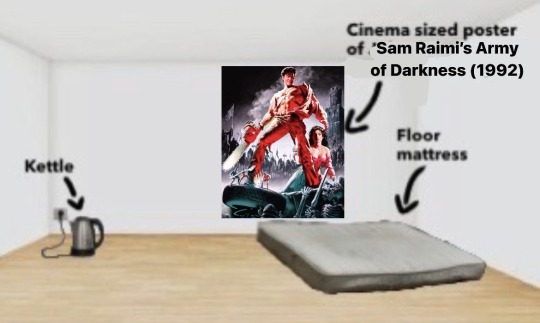
#army of darkness#evil dead#the evil dead#bruce campbell#ashley j williams#ash williams#meme#my post
3K notes
·
View notes
Text
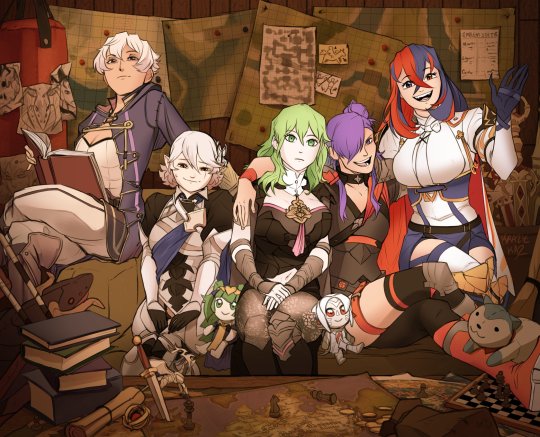
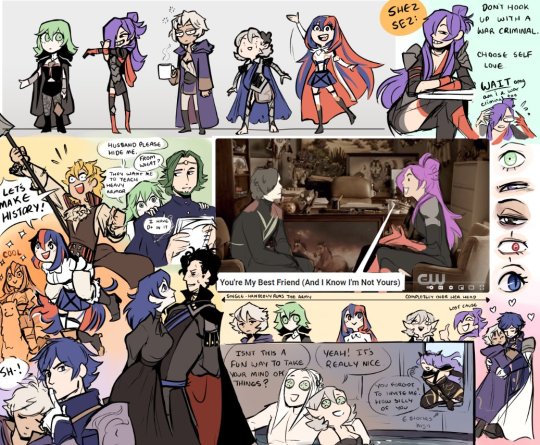
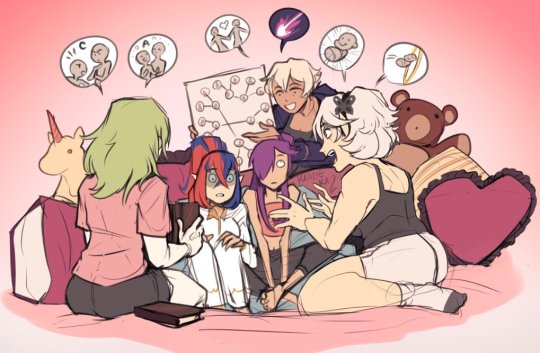

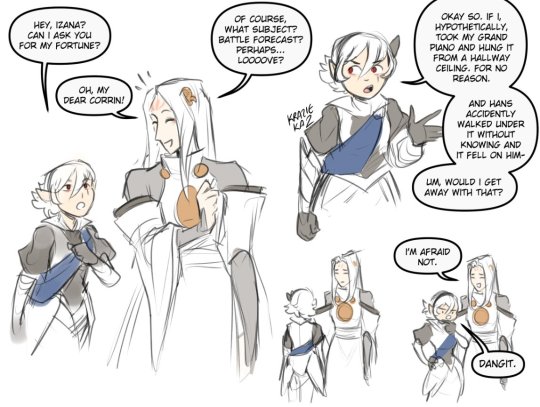
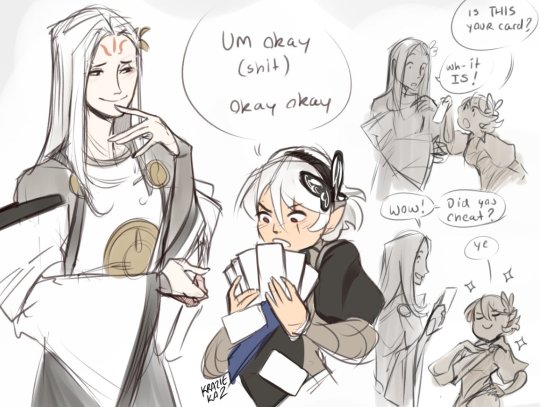
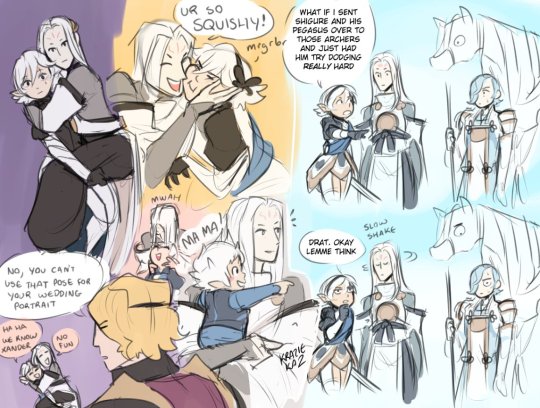
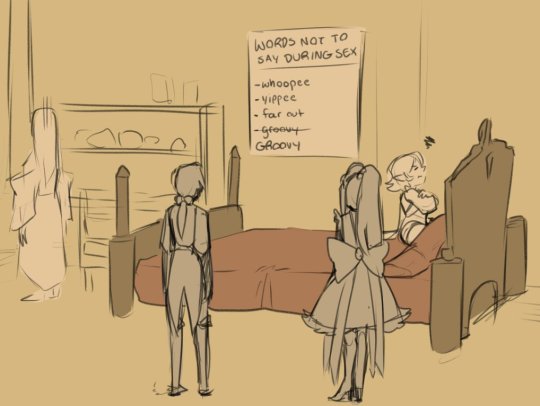
I've played the Fire Emblem Husbando Dating Simulator Games
#what is it about flawed media that makes fanart so compelling#awakening was a much stronger game than fates but i wanted to draw Corrin more than Robin#sometimes... things that are better written... are harder to draw funny doodles for rip#carrying over my posts from twitter choo chooooo#this one was posted to twitter so long ago im so sorry#anyway favorite protag: Shez#she's so stupid and explicitly so#If I were to rank the games... hm....#Houses for character writing but Engage for gameplay#Fates for map design#Awakening has the strongest core story I think#and Hopes has Shez#so there are no clear winners#i know there's going to be ppl asking where the other femc's are#answer: i cannot play as Kris in the west so i dont know her she's a stranger#secret confession i have no idea why anyone would use the friendship seals in fates i dont get them#also i still think Alear asking OG Army Breeder Sigurd how he feels about eugenics is funny thank u#fe3h#fe awakening#fe fates#few3h#byleth#corrin#shez#alear#there is no way robin has her own tag
1K notes
·
View notes
Text
Pt 11









Pt 1, Pt 2, Pt 3, Pt 4, Pt 5, Pt 6, Pt 7, Pt 8, Pt 9, Pt 10
Candy cane brigade is a reference to this lovely post. Not my original idea
#happy thanksgiving#posting on thanksgiving for all of you that need to get away from family for a few minutes#commander fox#commander thorn#commander thire#commander stone#coruscant guard#star wars#the clone wars#palpatine#grand army of the republic#gar#star wars memes#hound#grizzer#corrie guard#in universe memes#memes from the corrie group chat
437 notes
·
View notes
Text


#goku#son goku#genkidama#spirit bomb#dragon ball#dragon ball z#dragon ball z super android 13#dragon ball z movie#red ribbon army#android#my own post#aesthetic#art#anime#2000s internet#gif#my gifs#my gif#old anime#anime retro#retro art
1K notes
·
View notes
Text
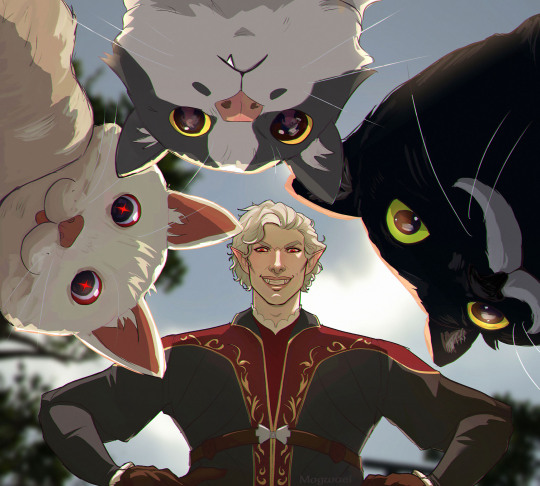
Pov: ur a rat and the lads are hankering for a snack
(Don't worry, astarion is just there to watch them unleash carnage, he only drinks the finest vintages these days)
#bg3#baldurs gate 3#baldurs gate astarion#astarion#bg3 astarion#cats#artists on tumblr#my ref was a real pic i saw on twitter and was compelled to draw astarion in it 😌#mogwaei arts#post edit: ffs astarion is not eating the rat. he is however training his cat army to exact bloody horror upon the world
2K notes
·
View notes
Text
ON THIS DAY
June 22nd - Bilbo returns home, only to find out he has been declared dead and his belongings are being auctioned
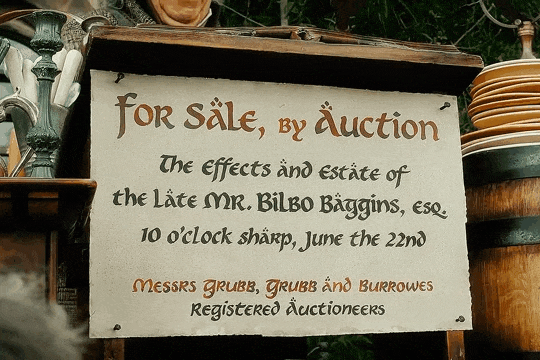




#on this day#hobbit#the hobbit#lotr#lord of the rings#scheduled post#the lord of the rings#bilbo baggins#lobelia#lobelia sackville baggins#the battle of the five armies#the hobbit botfa#botfa#lotr gifs#lotr gif#hobbit gifs#hobbit gif#tolkien#jrrt
577 notes
·
View notes